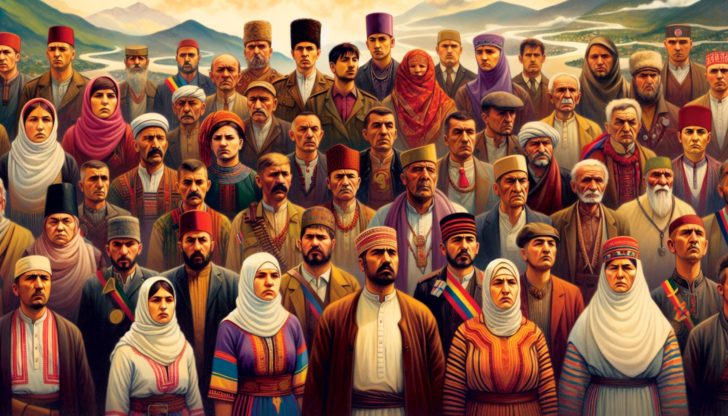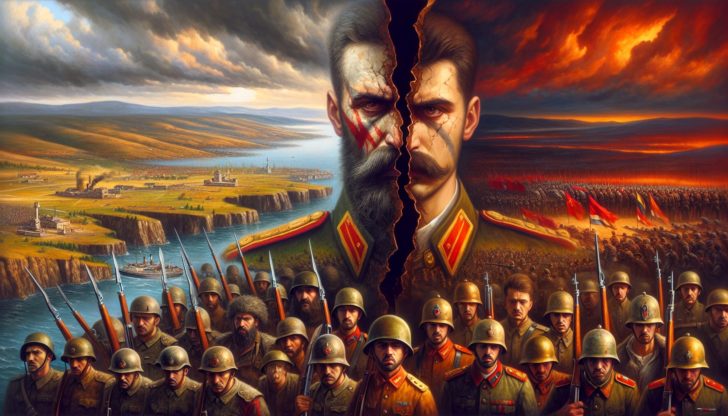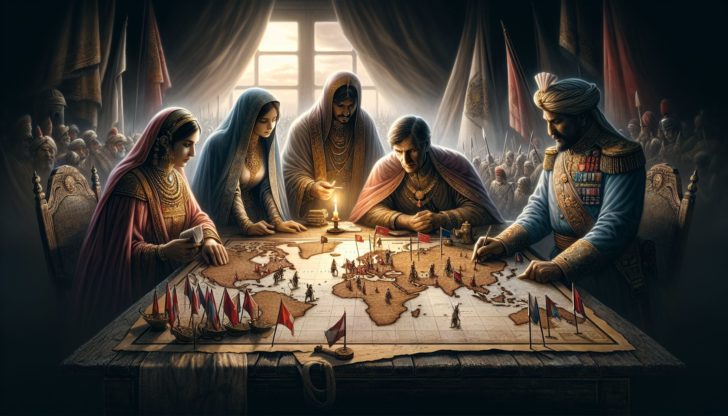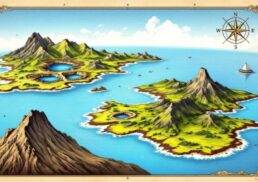The Balkan Wars were a crucible of change for Southeast Europe. But why did the “Balkan War” happen, who was involved, and what did they change? Our article directly addresses these questions, offering a detailed examination of the conflicts that rattled the early 20th century, reshaping borders and setting fraught precedents for the future.
Table of Contents
Key Takeaways
The Balkan Wars were instigated by rising ethnic nationalism, the Young Turk Revolution, and the formation of the Balkan League; all contributing to tensions that led to the conflicts reshaping European borders and prompting the decline of the Ottoman Empire.
The First Balkan War (1912-1913) was characterized by the unified efforts of the Balkan League against the Ottoman Empire, resulting in significant territorial gains for the League members, while the second war stemmed from intra-alliance disputes, particularly over Macedonian territory.
The Balkan Wars’ legacy included a substantial reconfiguration of the region’s borders, fostering of ethnic tensions, and atrocities that set a precedent for future conflicts, including World War I and the Yugoslav Wars of the 1990s.
The Roots of the Balkan Wars

Transport yourself back to the early 20th century, where the Balkan Peninsula was a hotbed of nationalist fervor and geopolitical tension. This region was on the brink of military conflicts that would indelibly reshape European history. The origins of the Balkan Wars were rooted in rising ethnic nationalism, the tumultuous Young Turk Revolution, and the strategic formation of the Balkan League.
The diverse ethnic groups within the Ottoman Empire were not content with their borders, which failed to reflect their distinct national identities. As the empire weakened, these groups pursued their national aspirations with increasing intensity, often leading to violent disputes.
Meanwhile, the Young Turk Revolution of 1908 brought about significant changes in the political dynamics between the Ottoman Empire and the Balkan states. The centralist policies of the Young Turks led to discontent among diverse ethnic groups in Macedonia and fueled Albanian nationalism, contributing to the escalating unrest that would eventually explode into the Balkan Wars.
Rising Ethnic Nationalism
The escalation of ethnic nationalism significantly contributed to the onset of the Balkan Wars. The Ottoman Empire, a vast territory spanning three continents, was home to a multitude of distinct ethnic groups. As the empire weakened, these groups began to agitate for the creation of nation-states that better reflected their ethnic and historical roots.
However, the lack of clear national borders within the empire led to overlapping territorial claims among aspiring nation-states. These disputes fueled and were further exacerbated by the rising tide of ethnic nationalism, often turning violent. The Balkan Peninsula became a powder keg, ready to ignite at the slightest spark.
Young Turk Revolution
1908 marked a crucial power shift within the Ottoman Empire, triggered by the Young Turk Revolution. This event dramatically impacted the political dynamics between the empire and the Balkan states, contributing to growing discontent, especially among diverse ethnic groups in Macedonia.
The centralist policies of the Young Turks further fueled the burgeoning nationalism among the Albanians. This, in turn, played a pivotal role in the escalating unrest that would eventually cascade into the Balkan Wars.
Formation of the Balkan League
In the midst of these tensions, a significant alliance was forged: the Balkan League, which can be seen as a precursor to the later Yugoslav Federation. This coalition, consisting of Serbian and Greek forces, among others, included:
Serbia, with the support of Bosnian Serbs
Bulgaria
Greece
Montenegro
Formed under Russian auspices in the spring of 1912, the League aimed to seize territories like Macedonia from the Ottomans, setting the stage for collective military action against the empire. The formation of this alliance was in part due to the patriotic societies in Serbia and Bulgaria, which fostered unity among the Balkan states against Ottoman rule.
Despite this unity, fears of Bulgarian territorial ambitions led Greece and Serbia to form a secret defensive alliance post the Treaty of London. This, coupled with the establishment of the Balkan League as a loose confederation with the strategic goal of confronting Ottoman control, set the stage for the First Balkan War.
The First Balkan War: A Struggle for Territory

The stage was perfectly poised for the First Balkan War, a territorial struggle that would drastically change the face of Europe, including Bosnia and Herzegovina. In October 1912, Montenegro declared war on the Ottomans, marking the beginning of the conflict. Serbia, Bulgaria, Greece, and Montenegro, united as the Balkan League, quickly joined the fray, fighting against the once-mighty Ottoman Empire.
The Balkan allies achieved notable victories during the First Balkan War. The Serbian army, along with the Serb forces, achieved a great victory at Kumanovo, and the Bulgarian army carried out successful sieges, all of which contributed to the eventual success of the war.
As a result, the Ottoman Empire lost the vast majority of its European territories, retaining only parts of Thrace and the city of Adrianople. The First Balkan War had redrawn the map of the Balkans, and set the stage for the conflict to come.
Major Battles and Victories
Several notable battles and victories characterized the First Balkan War. Some of these include:
The Serbian army achieved a great victory at Kumanovo, marking a turning point in the conflict.
The Bulgarian army achieved major victories at Kirk Kilisse and Buni Hisar/Lule Burgas.
The Greeks occupied Salonika and advanced on Ioánnina.
Despite the Bulgarian army’s significant advances, they were ultimately halted at the outskirts of Constantinople by the formidable Çatalca line. Meanwhile, the Greek Navy played a crucial role in the Thracian campaign by neutralizing three Thracian Corps of the Ottoman Army, which played a key role in the naval theater.
Role of the Balkan League

The Balkan League held a central position in the First Balkan War. The league, consisting of:
Serbia
Greece
Bulgaria
Montenegro
coordinated a simultaneous declaration of war on the Ottoman Empire. This move was motivated by the shared goals of protecting their ethnic compatriots and expanding their territories in the region.
The league’s coordinated efforts and unity were instrumental in securing a victory against the Ottoman Empire. Each state played a significant role in facing the Ottomans, contributing to the eventual success of the First Balkan War. This victory marked a turning point in the history of the Balkans, setting the stage for the conflicts to come.
The Second Balkan War: Allies Turned Enemies
As the aftermath of the First Balkan War was settling, another conflict was on the horizon. The Second Balkan War arose out of discontent amongst the Balkan allies, particularly Bulgaria’s dissatisfaction with the territorial divisions resulting from the first conflict. Unwilling to accept its share of the spoils, Bulgaria launched a surprise attack on its former allies Serbia and Greece, marking the commencement of renewed hostilities.
The Second Balkan War concluded with Bulgaria losing territory to all of her enemies, as stipulated in the Treaty of Bucharest. This war not only redrew the map of the Balkans once again but also marked a significant shift in regional alliances. The Balkan Wars had transformed the once-unified allies into enemies, setting the stage for even more devastating conflicts in the years to come.
Disagreements Over Conquests
Disagreements over territory division lay at the core of the Second Balkan War. Macedonia became the primary region of conflict due to Serbia capturing more territory than previously agreed with Bulgaria. These disputes over territorial divisions led to escalating tensions and the outbreak of the Second Balkan War.
These territorial disputes weren’t limited to Macedonia. Serbia’s demand for a greater share of Macedonia, as well as other territorial claims, led to escalating disagreements. These disputes, combined with complex ethnic dynamics, eventually led to hostilities among former allies, marking the beginning of the Second Balkan War.
Alliances Shift and New Conflicts Emerge
The Second Balkan War was also characterized by the emergence of new conflicts and the shifting of alliances. Dissatisfied with the outcomes of the Balkan Wars, Bulgaria turned to Austria-Hungary for support, indicating a significant shift in regional alliances. At the same time, Romania, seeking to distance itself from the Triple Alliance, oriented towards the Triple Entente, thus realigning its diplomatic connections.
These shifts in alliances contributed to the emergence of new conflicts and tensions. Romania intervened in the Second Balkan War in an effort to prevent Bulgaria from asserting dominance over Serbia and Greece. Meanwhile, the Austro-Hungarian Empire, viewing an empowered Serbia as a threat, considered a pre-emptive strike as a means to restore the balance of power in the Balkans.
The Aftermath and Legacy of the Balkan Wars
The Balkan Wars had a deep and enduring impact both on the region and globally. The outcomes of the wars, including territorial losses, accelerated the decline of the Ottoman Empire. The wars also ushered in a dark era of ethnic cleansing and humanitarian crises, setting a grim precedent for subsequent conflicts in the region.
The wars also played a significant role in shaping the geopolitical landscape of the 20th century. They strained relations between Austria-Hungary and Serbia, contributing to the outbreak of World War I. At the same time, the nationalist tensions that were exacerbated during the wars resurfaced in the Yugoslav Wars of the 1990s.
Territorial Changes and Independence Movements
The Balkan Wars resulted in considerable territorial shifts and sparked various independence movements. One of the most significant outcomes was the establishment of Albania as an independent state. Overseen by a German prince, this marked a substantial shift in the political landscape of the region.
Other territorial changes included Serbia gaining the Kosovo region and extending into northern and central Macedonia. Greece emerged from the wars with control over southern Macedonia and the island of Crete. These changes, formalized by the Treaty of Bucharest in 1913, marked a significant reconfiguration of the Balkan map.
Ethnic Cleansing and Humanitarian Crises
One of the darkest aspects of the Balkan Wars was the ethnic cleansing and humanitarian crises that occurred during and after the conflicts, involving various groups such as Bosnian Croats. Some of the key features of these crises include:
Systematic efforts to eliminate ethnic groups through violence and forced expulsions
Strategies used to secure territorial claims
Widespread human rights abuses and atrocities committed against civilians
These events left a lasting impact on the region and continue to shape its political and social landscape.
The legacy of ethnic cleansing during the Balkan Wars provided a dark precedent for subsequent war crimes in the region. This grim legacy still echoes in the modern era, reminding us of the grave atrocities that can occur during times of conflict.
Influence on World War I and the Yugoslav Wars
The Balkan Wars significantly shaped the major conflicts of the 20th century, especially World War I and the Yugoslav Wars. The strain in relations between Austria-Hungary and Serbia, caused by the Balkan Wars, was a contributing factor to the outbreak of World War I. The redistribution of alliances in the Balkans, post-Balkan Wars, added to the complex pre-World War I tensions.
The destabilization of the Balkan region by the Balkan Wars also played a critical role in setting the stage for the Yugoslav Wars in the former Yugoslavia. Following the Balkan Wars, lingering tensions and nationalist sentiments among ethnic groups in the region resurfaced after the death of Josip Broz Tito, contributing to the Yugoslav Wars of the 1990s.
Learn more, visit Balkan Wars: 1912, Outcome & Causes.
Summary
As we look back on the turbulent chapter of the Balkan Wars, it’s clear that these conflicts were more than just a regional power struggle. They were a momentous turning point in history that reshaped the geopolitical landscape of Europe and had far-reaching effects on the global stage. The wars ignited the flames of nationalism, shifted alliances, set the stage for World War I, and left a lasting legacy that still reverberates in our modern world. In the words of Winston Churchill, “The Balkans produce more history than they can consume.” This adage holds true as we continue to feel the impact of these wars, more than a century later.
Frequently Asked Questions
What were the main causes of the Balkan Wars?
The main causes of the Balkan Wars were rising ethnic nationalism, the Young Turk Revolution, and the formation of the Balkan League, which resulted in territorial disputes and conflicts among the Balkan states and the Ottoman Empire.
What were the major battles and victories of the First Balkan War?
The major battles and victories of the First Balkan War included the Serbian victory at Kumanovo, the Bulgarian sieges, and the Greek occupation of Salonika. These events were pivotal in shaping the outcome of the war.
What led to the Second Balkan War?
The Second Balkan War was caused by disputes over territorial divisions following the First Balkan War, leading to Bulgaria launching a surprise attack on its former allies Serbia and Greece.
What were the territorial changes after the Balkan Wars?
The territorial changes after the Balkan Wars included the establishment of an independent Albania, Serbia gaining Kosovo and parts of Macedonia, and Greece controlling southern Macedonia and Crete.
How did the Balkan Wars influence World War I and the Yugoslav Wars?
The Balkan Wars strained relations between Austria-Hungary and Serbia, contributing to the outbreak of World War I, and exacerbated nationalist tensions in the region, resurfacing in the Yugoslav Wars of the 1990s.









